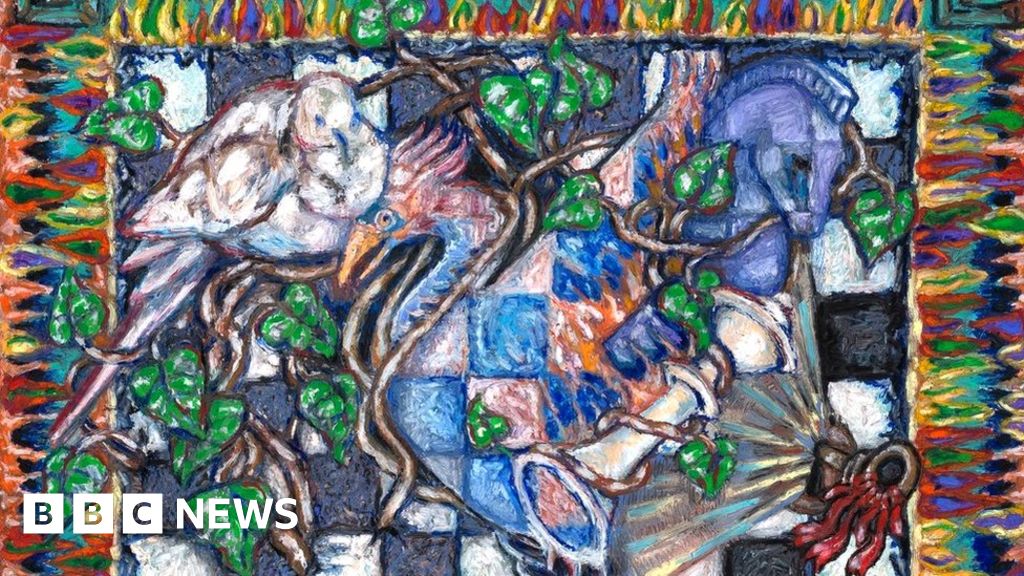Bitcoin Puzzle Worth $50,000 Solved After Nearly Three Years

 Image copyright
@coin_artist
Image copyright
@coin_artist
A secret code hidden in a painting that gave access to an online wallet containing Bitcoin worth $50,000 (£35,500) has been cracked after nearly three years.
The artwork, by Rob Myers and @coin_artist, who uses a pseudonym, was first published online in early 2015.
A code contained within it revealed a private key that granted its discoverer access to the wallet full of bitcoins.
And the bitcoins were finally removed from the wallet last week.
Technology website Motherboard reported that a 30-year-old programmer had claimed the funds after searching online for puzzles to do with crypto-currencies.
Motherboard added that the programmer said they lived in a country where it was "not safe" to own Bitcoin and therefore wanted to keep their name secret.
The puzzle encoded a string of binary - a series of zeroes and ones - in complicated rows of flames painted around the edge of the canvas.
The colour and shape of each flame determined a four-character chunk of the binary series, with a further part of the code represented by six ribbons of different lengths in the bottom right-hand corner.
After all of these codes had been worked out and linked together, the successful puzzle-solver was able to translate the full string of zeroes and ones into a Bitcoin private key with the help of a simple computer program.
It wasn't surprising that it had taken so long for someone to solve the painting's code, said Peter Todd, a cryptography consultant.
"Puzzles like that one aren't things you can just throw computing power at - they're genuine brain puzzles," he told the BBC.
This is not the first time someone has claimed bitcoins after cracking a puzzle set by their original owner.
In January, a Belgian PhD student worked out a key to a single bitcoin - then worth more than $10,000 - after decoding a strand of synthetic DNA.
And two hackers claimed $1,000 in Bitcoin late last year after reconstructing a partially blurred-out QR code that had briefly appeared on French television.
From Chip War To Cloud War: The Next Frontier In Global Tech Competition
The global chip war, characterized by intense competition among nations and corporations for supremacy in semiconductor ... Read more
The High Stakes Of Tech Regulation: Security Risks And Market Dynamics
The influence of tech giants in the global economy continues to grow, raising crucial questions about how to balance sec... Read more
The Tyranny Of Instagram Interiors: Why It's Time To Break Free From Algorithm-Driven Aesthetics
Instagram has become a dominant force in shaping interior design trends, offering a seemingly endless stream of inspirat... Read more
The Data Crunch In AI: Strategies For Sustainability
Exploring solutions to the imminent exhaustion of internet data for AI training.As the artificial intelligence (AI) indu... Read more
Google Abandons Four-Year Effort To Remove Cookies From Chrome Browser
After four years of dedicated effort, Google has decided to abandon its plan to remove third-party cookies from its Chro... Read more
LinkedIn Embraces AI And Gamification To Drive User Engagement And Revenue
In an effort to tackle slowing revenue growth and enhance user engagement, LinkedIn is turning to artificial intelligenc... Read more

